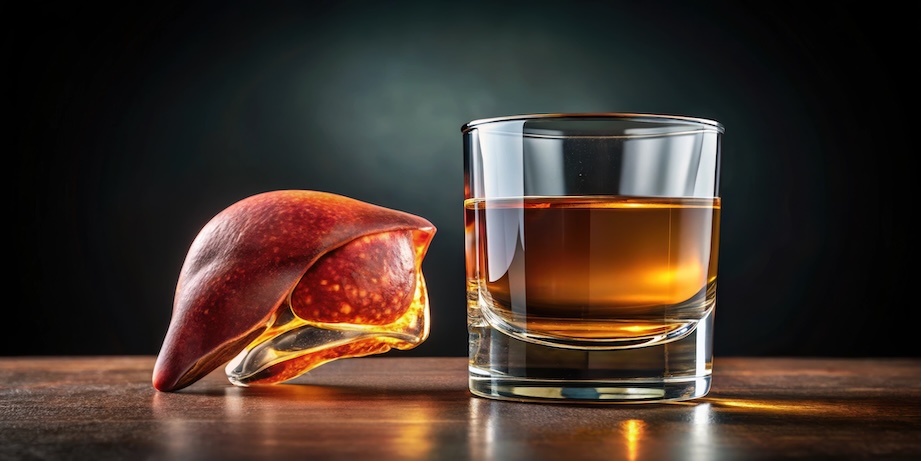Alcohol-related Liver Disease

Alcoholic Liver Disease (ALD) has several names:
- Alcohol-related Liver Disease (ALD)
- Alcohol-associated Liver Disease (ALD)
- Alcoholic Hepatitis
- Alcohol-induced Hepatitis (AIH)
- Alcoholic Fatty Liver Disease (AFLD)
The key point is this type of liver damage is caused by alcohol consumption.
This disease is caused by heavy alcohol use. Your liver performs the job of breaking down alcohol, but when you drink more than it can process, the liver can become damaged due to inflammation, called hepatitis. This inflammation can lead to cirrhosis, a potentially life-threatening condition.
Defining heavy drinking
There is no formula, but heavy drinking over an extended period of time increases your risk.
Not all heavy drinkers will develop alcoholic liver disease. Some people are able to drink heavily without causing hepatitis while others have livers that are more sensitive to alcohol.
- Heavy drinking in females: about three drinks per day or more than 7 drinks per week
- Heavy drinking in males: around four standard drinks a day or more than 14 drinks per week
Binge drinking is defined as more than five drinks in a night for men, four for women. Binge drinking 5 times a month is considered heavy binge drinking.
Symptoms
In early or mild hepatitis, it is not common to have symptoms, but as this disease progresses you may begin to notice:
- Tenderness or soreness in your upper right abdomen
- Visibly swollen or enlarged liver
- Loss of appetite and weight loss
- Nausea
- A swollen abdomen
- Light-colored stools that float
As alcoholic liver disease becomes more severe, you may notice:
- Fever
- Fast heart rate
- Jaundice (yellowing of the whites of your eyes)
- Easy bleeding and bruising
- Confusion
- Fatigue and malaise
Diagnosis
- A review of your medical history
- Physical exam
- Blood tests
- Imaging tests
- Discussion about your alcohol use
- Liver biopsy
- Review of all medications and supplements
Treatment
There is no medicine to treat alcoholic liver disease. The most effective treatment is to stop drinking. Ask your doctor about how to safely quit drinking.
Nutritional therapy and short-term steroids are common supplemental treatments that can help treat some of the complications that alcohol use and hepatitis cause.
Can it be reversed?
Quitting alcohol can reverse your disease if it isn’t too far advanced. If you continue to drink alcohol, your liver will likely continue to progress towards cirrhosis (scarring of the liver) and liver failure. Existing scar tissue cannot be reversed, but further damage can be prevented by abstaining from alcohol.
Recovery
People who quit drinking after they are diagnosed typically show meaningful improvement in their liver function after 6-12 months. In mild cases, liver damage can resolve entirely. In more progressed cases of alcoholic liver disease, gradual improvements in liver function can be seen over the years that follow.